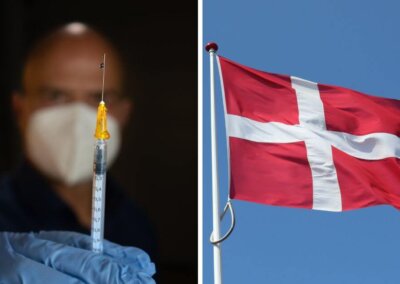Almost three quarters of people over 50 who had previously expressed a wish to die no longer had that desire two years later, according to a study.
The Irish Longitudinal Study on Ageing (TILDA), surveyed 8,174 people over the age of 50 and found that 3.5% expressed a wish to die at Wave 1 of the study. However, as the report states:
“Seventy-two per cent of these participants no longer reported a wish to die when reassessed 2 years later”.
Researchers behind the study from Trinity College Dublin found that the “wish to die” among older people is often “transient” and linked with depression and feelings of loneliness.
Furthermore, TILDA found that 60% of those who reported a wish to die also had “clinically significant” depressive symptoms while half had been diagnosed with depression.
High rates of loneliness
The study also found high rates of loneliness among those who had a wish to die (WTD).
“Almost three-quarters of participants reporting WTD also reported loneliness at least some of the time, while almost one fifth with WTD reported that they were lonely all the time. Almost one-third of participants who felt lonely all the time also endorsed WTD”.
These findings are especially relevant at this time, according to the authors, because the Dying with Dignity Bill is currently being reviewed by the Oireachtas Committee on Justice. The researchers call for an “enhanced focus on improving access to mental health care and addressing social isolation in older people”, particularly in the context of the Covid-19 pandemic.
In reference to the additional hardships and burdens during the COVID-19 crisis, the authors say: “these decisions are being made at a time of greatly increased prevalence of depression and loneliness among older adults and given the strength of the associations shown here, it is reasonable to expect that the prevalence of WTD will have increased in line with increased depression and loneliness”.
Prof Rose Anne Kenny, head of medical gerontology at Trinity College and consultant geriatrician, who was a senior author on the study, said “This study demonstrates that a wish to die in later life is often transient but is closely linked with remediable factors such as loneliness and social isolation, the burden of which is likely to increase significantly during the Covid-19 pandemic”.
She also noted that almost two-thirds of participants who expressed a wish to die in the study had at least one chronic illness, which meets the criteria for a terminal illness as proposed in the Dying with Dignity Bill.
The Dying with Dignity Bill tabled by People Before Profit TD Gino Kenny last year, which seeks to legalise assisted dying, has been described as “deeply flawed” by palliative care consultants.
Non-medical end of life concerns
The Oregon Health Authority recently released its annual report on assisted suicide in the state, which also found a series of non-medical concerns for people who ended their lives by assisted suicide.
The report lists ‘End of Life Concerns’ of patients who underwent an assisted suicide in 2020. 53.1% of patients were concerned with being a “burden on family, friends/caregivers”. 94.3% of patients were concerned with being “Less able to engage in activities making life enjoyable”. 93.1% were concerned with “losing autonomy” and 71.8% were concerned with “loss of dignity”. Of the total who have died since 1997, 27.4% have listed “inadequate pain control, or concern about it” as one of their end of life concerns.
Last year, a healthy 90-year-old Canadian woman ended her life by euthanasia to avoid having to live through another lockdown.
Right To Life UK spokesperson, Catherine Robinson, said: “Sadly, none of this should come as a surprise to anyone who has experienced profound loneliness and isolation. It is surely something that many of us have become acquainted with during this crisis. What TILDA has found coheres with the data from Oregon: many people who have a ‘wish to die’ are doing so for personal and social reasons, not solely medical ones”.
“Concerns about loneliness, loss of autonomy and the like, are all real problems. But they are not medical problems to be ‘treated’ by ending the life of the sufferer. They can be alleviated to a large degree through friendship and meaningful interaction with others. Unfortunately, the modern practice of sometimes providing a means-to-die rather than a means-to-help demonstrates the double standard when comparing mental health and end of life issues”.






